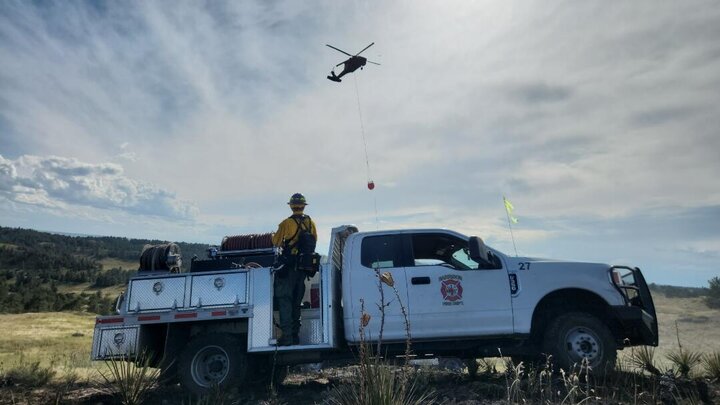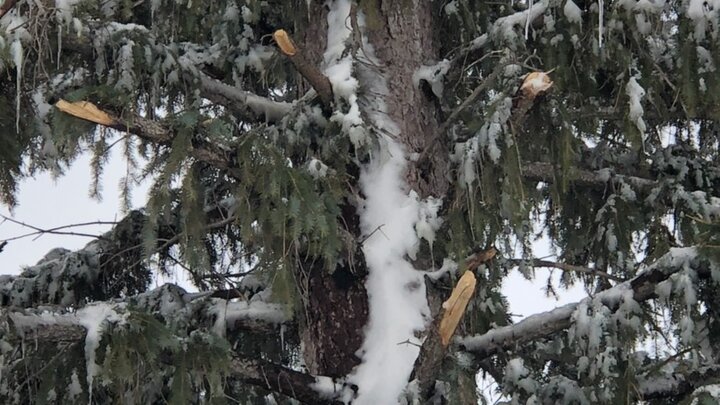In the rugged Loess Canyons of southwest Nebraska—where steep terrain and dense vegetation make wildfire management especially challenging—the McCook Public Power District (MPPD) is taking proactive steps to protect critical infrastructure and reduce wildfire risk.
This region presents unique barriers to wildfire mitigation. Steep slopes, fragmented private land ownership, and heavy fuel loads contribute to higher treatment costs and make creating large, continuous firebreaks difficult. In response, MPPD approached the Nebraska Forest Service (NFS) in fall 2020 to explore funding options for managing vegetation along powerline rights-of-way.
NFS foresters collaborated with MPPD to design a vegetation management strategy focused on reducing fire risk around powerlines. The resulting project was partially funded through the State Fire Assistance (SFA) and Wildland Urban Interface (WUI) programs, awarded via the Council of Western State Foresters’ competitive grant process. The effort prioritized the creation of fuelbreaks along MPPD's utility corridors.
Using a 50-50 cost-share model—half funded by SFA-WUI grants and half by MPPD—the project created fuelbreaks 100 to 150 feet wide to help prevent wildfires from igniting or spreading. Staff worked closely with landowners to extend the treatment areas beyond the utility corridors to include adjacent private lands.
“The project aims to safeguard power lines and water supplies while enhancing firefighter access and preparing the landscape for future prescribed burns,” says Mark Frickel, NFS Wildland Urban Interface Forester based in North Platte.
Initial efforts began in 2021 with small-scale treatments covering 10 to 30 acres. Encouraged by early results, MPPD and NFS expanded the effort with a 150-acre project completed in fall 2024. This larger initiative involved 15 private landowners and two state agencies, creating a continuous fuelbreak that dramatically improves wildfire preparedness at the landscape level.
With many miles of powerline corridors still at risk, MPPD and NFS plan to seek additional funding to expand the program. The McCook Public Power Project now stands as a model for collaborative wildfire risk reduction—protecting infrastructure, supporting local landowners, and building long-term resilience across Nebraska’s fire-prone regions.
For more information, contact Mark Frickel at mfrickel2@unl.edu.




